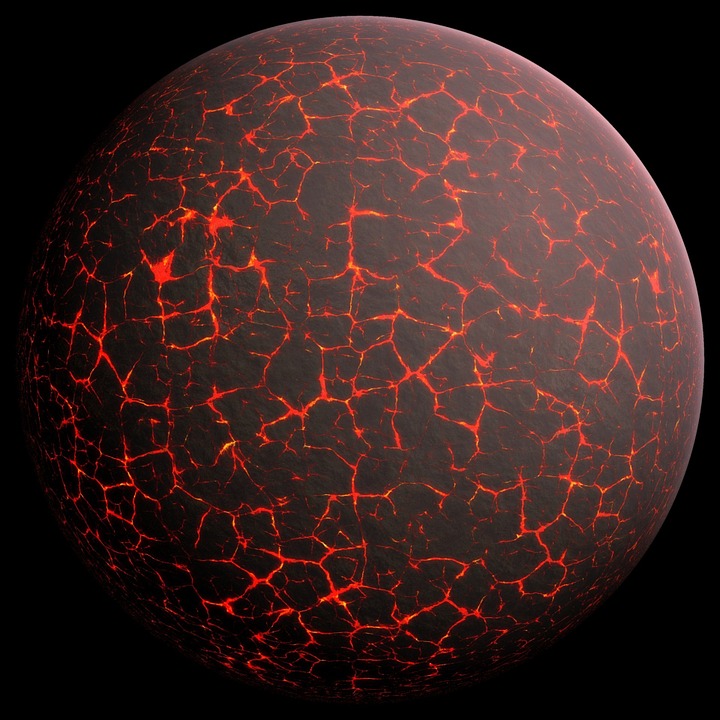Mercury's May Transit: Why do we care?
Interview with
On Monday, Mercury passed between us and the Sun, blocking out some of its  rays in an event that only happens every few years. David Rothery told Graihagh Jackson why these so-called transits are so important...
rays in an event that only happens every few years. David Rothery told Graihagh Jackson why these so-called transits are so important...
David - When it was first realised that planets would pass between the earth and the sun, it was important to look at transits because seeing the same transits from different points on the globe and getting the timings right helped you work out the scale of the solar system. The first transit observed was one of Mercury, in fact, early in the 17th century. Haley was the one credited with realising the trigonometric benefits of observing a transit from different places. He said "observe the same transit from two distant places on the earth, and you can use trigonometry to work out the relative difference between the earth to mercury and, therefore, from mercury to the sun and, therefore the earth/sun distance," which wasn't accurately known at the time.
Graihagh - And this is how the astronomical unit came about?
David - This is the definition of the astronomical unit which is the average distance of the earth from the sun.
Graihagh - And why is an astronomical unit important? I'm thinking if we ever wanted to go to Mars are we like - oh it's like five astronomical units? I always think of things in light years these days.
David - Cast yourself back to the 17th century. We did not know how big the solar system was. It was late in the 16th, early in the 17th Century when opinion was swinging away from the old view of the solar system which had everything going round the earth, to accepting what Copernicus has said "the suns in the in the middle, everything else goes round the sun." And once that was realised, it become important to work out how big is all this? So this was a step towards realising the scale of the universe, which is vast.
Graihagh - Transits like Mercury's have been used to form the very basis of our understanding of space but now that we've learned everything we can, are they just a pretty effect?
Well in our solar system - maybe. But, if we look further afield using a telescope, we can actually pick up the transits of other planets around other stars. These so-called exoplanets cause a dip in the light of the star they're orbiting and, through monitoring their progress, the things we can learn are incredible.
Dr Carole Haswell is an astronomer from the Open University...
Carole - In about, I think it was 2003, I saw the press release for a paper which had observed an exoplanet, using the Hubble space telescope, to look in the ultraviolet and they had seen instead of a 1% - a very subtle dip - a 15% diminishing in the light from the star when the planet passed in front of it from our point of view and this told us that the planet was actually surrounded by a huge cloud of hydrogen. And I just thought that was incredibly interesting that you could get such a prominent signal from something that is a planet that we can't directly detect. At that point I thought this is just too exciting and exoplanets are the way to go.
Graihagh - Before you mentioned that you were looking at the chemistry of what's in these atmospheres. You mention hydrogen - what other elements can you detect and, I suppose, what does that tell you about that planet?
Carole - The atmosphere of an exoplanet is, actually, generally quite a thin layer but, if you go further out, the planet is surrounded by a much more extended cloud, so the exosphere, the extended atmosphere of the planet. In the exosphere we've discovered all sorts of things including: iron, carbon, oxygen silicon. You name me a chemical and, whether or not we've discovered it, is likely to be a function more of whether we have been able to make measurements at the right region of the electromagnetic spectrum at the right wavelength of light.
Graihagh - What's the ultimate goal? Why study these exoplanets?
Carole - We need to understand our own environment and, particularly, what we're doing to our own environment. One of the ways we can get insight in that is to look at a wide variety of different planets so we can examine all the different bits of atmospheric physics in different parameter regimes. This allows us to actually, rather than just looking at this one example, get some empirical measured data that will allow us to properly train our analysis of the earth and be able to know that the models do seem to reproduce reality.










Comments
Add a comment